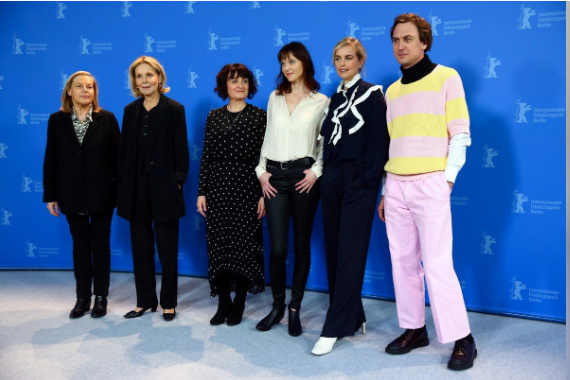
BERLIN (Reuters) – Swiss directors Stephanie Chuat and Veronique Reymond were guided by their experience of losing their own mothers in creating a “My Little Sister”, the tale of a woman’s struggle to support her twin brother through his terminal illness.
Set in Berlin and the Swiss Alps, the film stars Nina Hoss as Lisa, a wife and mother of two driven to the brink while trying to juggle her family and work with the emotional and physical challenge of caring for her brother.
One of 18 in the running for the Berlin Film Festival’s Golden Bear award, the film is one of several at the Berlinale that strive to show the world through female eyes.
Hoss plays a writer who blames her inability to write on having left Berlin to join her husband in Switzerland; it takes her actor brother, played by Lars Eidinger, to point out that her dry spell began with his cancer diagnosis.
“Stephanie’s mother got cancer and she was Lisa to her,” said Reymond. “She couldn’t write because caring for her mother was so demanding. And I wrote what I saw – I became the writer of what Stephanie had to endure with her mother.”
Eidinger plays Sven, a popular member of Berlin’s Schaubuehne theater, as Eidinger is in real life, consumed by the need to perform in order to feel alive.
“However paradoxical it sounds I feel more like me when I play a role,” Eidinger said.
Isolated even as she is assailed by the demands of a husband, a family, a job and a dying brother, Lisa has to chart her own way through the emotional maelstrom, alternately abandoning all hope and recovering it.
“That was what was in the story: letting go and then recovering,” Hoss said. “But recovery is different every time, and sometimes recovering is about letting go.”
Recalling her own experience, Chuat said: “… cancer has this particularity that it makes the person disappear bit by bit before our eyes”.
“And all that remains is what the person given us and that’s what we’ve tried to show in this film: it’s the life that remains via the survivor,” she said.

